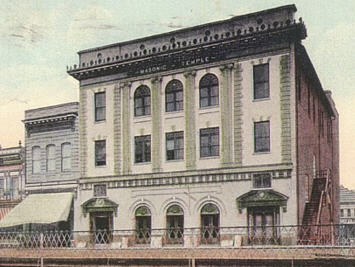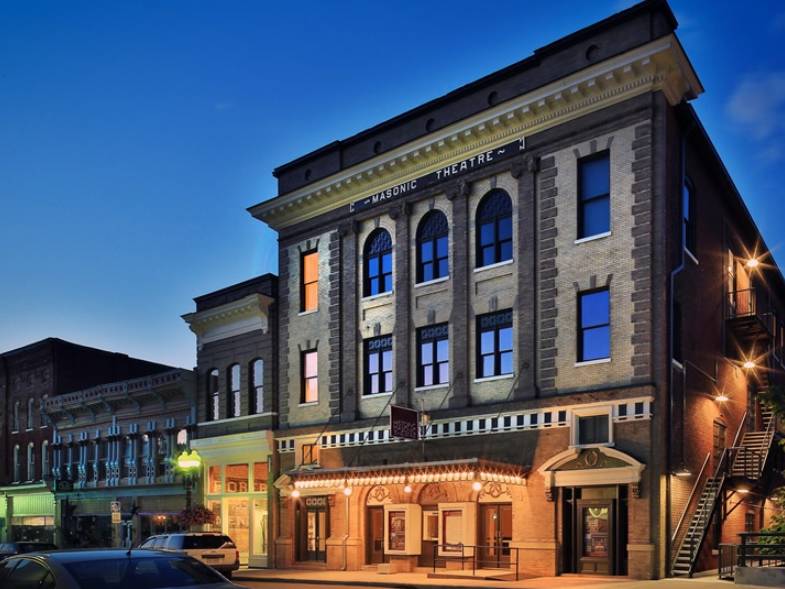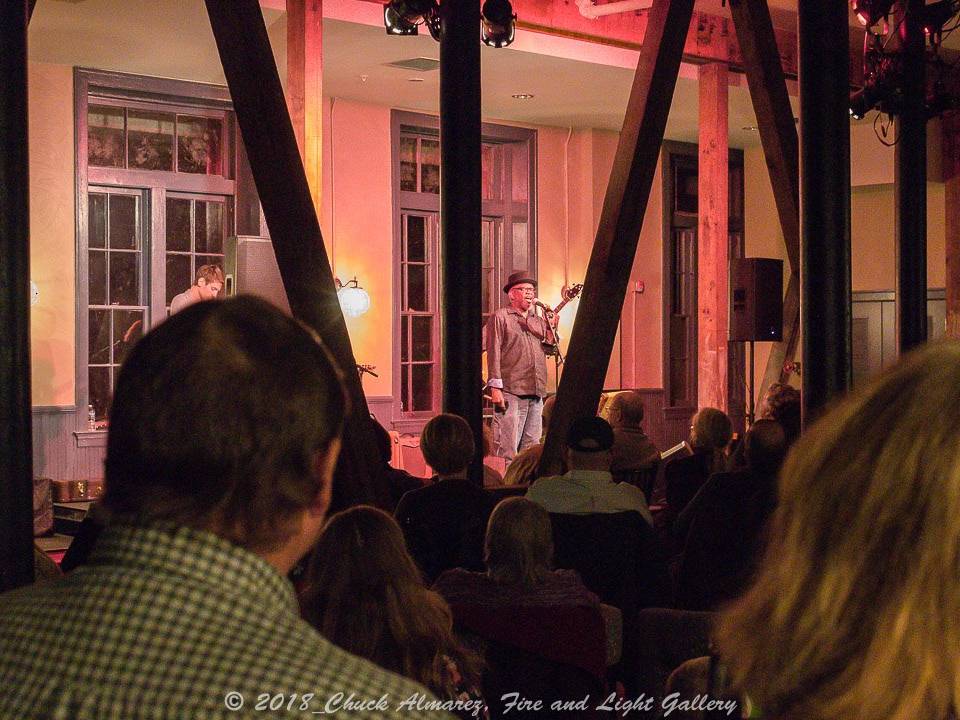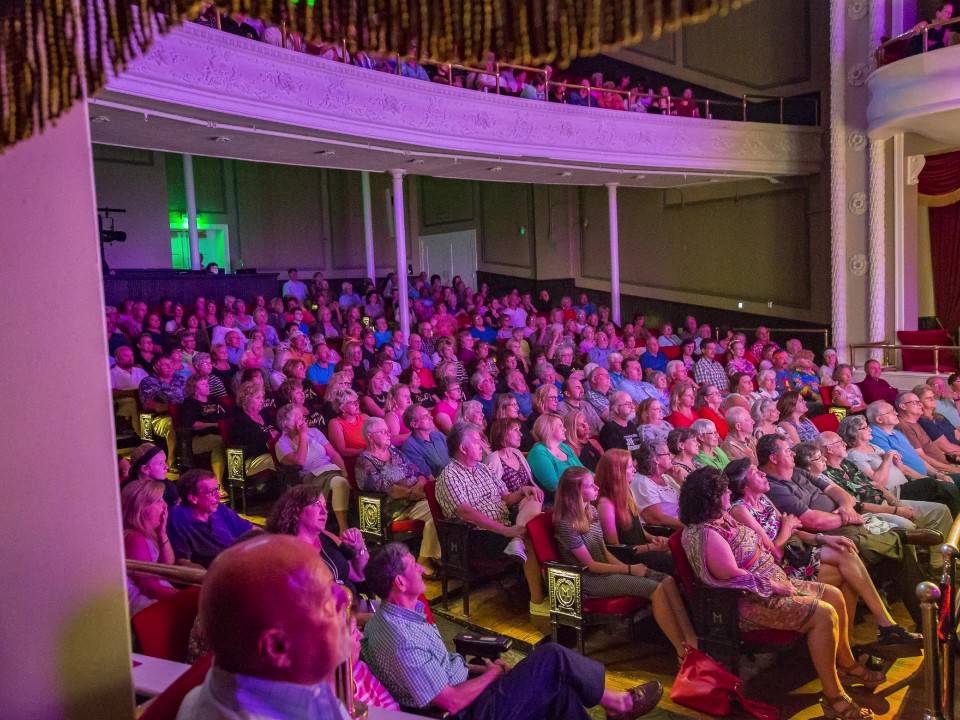The Historic Masonic Theatre has always had a way of capturing one’s imagination. Since opening in 1906, it has been a center for the arts, entertainment, education, and community in Clifton Forge, Virginia. After several changes in ownership, the Theatre eventually fell into disrepair. But in 2009, a group of engaged community members came together to save it. Inspired by their passion and clear vision for both the building and the town, The Alleghany Foundation and Locus, formerly Virginia Community Capital (VCC), became partners in revitalizing this vital cultural asset.
Once upon a time, Clifton Forge was a booming train town, serving as a maintenance center for steam locomotives. After more than 50 years of being fueled by the railroad, the town’s economy suffered when the diesel engine was invented. When new servicing facilities were established in West Virginia, the train moved on and took many of the town’s jobs and business with it. The economic impact was devastating, and many buildings and landmarks were set on a path to deterioration. In 2009, John Hillert, a local resident who was passionate about revitalizing Clifton Forge, recruited a group of engaged citizens who came together in determination to save what they saw as the heart of the community – the Historic Masonic Theatre.
Why a Theater?
Along with the history and nostalgia wrapped around the Masonic Theatre, there was a theory that it could jump-start the entire town’s revitalization. Theaters are economic drivers in a community; when people come to see a show, there’s a ripple effect that reaches other parts of town. Patrons go out to eat at the local restaurants, they buy gas at the corner station, and out-of-towners stay the night. With the cultural and economic impact in mind, the Masonic Theatre Preservation Foundation was formed in 2009, and they began fundraising for the Theatre’s restoration. Although donations enabled some moderate repairs, the group was a long way from the true renovation the Theatre needed and deserved. Determined to make good on their promise to the community, the Preservation Foundation sought help in closing the gap.
The Right Partners
The first partner to step in to support the renovation project was The Alleghany Foundation, a nonprofit organization that supports the arts, education, small business growth, and job creation in the Alleghany Highlands. Led by Executive Director Mary Fant Donnan, the Foundation was already a proven catalyst for revitalization at the time, having supported various economic development efforts in Clifton Forge and Alleghany County. Convinced by John Hillert and the Preservation Foundation, they saw the potential impact in bringing the Theatre back to life and agreed to provide a grant to fund the renovation. After digging in and learning more about the true scope of rehabilitation required, the grant and funds raised by volunteers were not enough. Essential pre-development work presented a significant gap in the capital stack.
After meeting Gayle Hillert, John’s wife and current Preservation Foundation president, at a local parade, the community development lenders at Locus decided to explore a supportive role. We immediately fell in love with the project, and we felt it could be crucial in the revitalization of Clifton Forge’s entire Main Street. Prior experience told us one big anchor project can inspire additional redevelopment, so we were committed and determined to find a way to make it happen.
The bridge loan was a bit complicated to secure, as we needed an asset to guarantee the loan to mitigate our risk. We couldn’t put a lien on the Theatre, so another solution was needed. That’s when The Alleghany Foundation stepped up and offered to guarantee the loan. The Foundation’s guarantee was pivotal; without this collaboration and the leveraging of multiple funding streams (including New Market and Historic Tax Credits), the project would have met its end.
We were honored to bring our expertise in navigating the complex space of innovative financing and capital stacking to the table. We were also inspired by the relationship that grew between the Masonic Theatre and The Alleghany Foundation. It proved how much more can be achieved when people with shared values work together, and it reminded us why our mission is more than providing access to capital. Working with likeminded individuals and organizations to remove barriers and stay the course is the secret ingredient to tackling a visionary project like the Masonic Theatre’s renovation. It’s about staying connected and jumping back in to ensure communities have the tools they need to sustain what they’ve started as time passes and circumstances evolve. The work of community revitalization is long-term.
A Source of Healing
The Masonic Theatre was closed for 15 months due to the COVID-19 crisis. As with many businesses, this was a devastating blow. The Theatre reopened in June, and its passionate leaders and staff are ready to pick up the momentum they were experiencing before the shutdown. Prior to the pandemic, the ripple effect could be seen. Restaurants saw up to a 30% bump in revenues when a show was on stage, and 47% of patrons were traveling to Clifton Forge from 25 miles away and beyond. The theory of what a theater could do for the whole community was proving true. Now, as we begin to come together again, the Theatre plays an important role. In addition to stimulating the economy and providing entertainment, the arts can be a source of healing. This is what the Theatre offers to its community and the entire Commonwealth.
The Historic Masonic Theatre has become a vibrant component of the town’s culture. To sustain life, communities need thriving businesses, living wage jobs, safe and affordable housing, and other social determinants of health. Culture and the arts, however, are often what bring a place to life. At Locus, we believe it’s all connected, and we are eager to continue reimagining, partnering with change makers, and finding innovative ways to support the aspirations and contributions of communities across Virginia and beyond.



